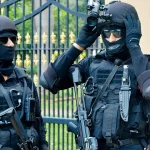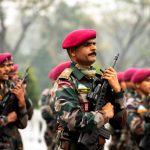To become a doctor in the Indian Army represents not only a prestigious career choice but also a profound commitment to serving the nation. For those with aspirations to harness their medical knowledge in a military setting, understanding the pathways, requirements, and opportunities that lie ahead is crucial. With the Indian Army’s integral role in national security, the need for proficient medical personnel to support its soldiers is paramount.
Historical Context
The Indian Armed Forces have always recognized the importance of medical support, tracing back to ancient times when healthcare for warriors was considered essential. The modern era saw significant institutional development with the establishment of the Armed Forces Medical College (AFMC) in Pune in 1962, specifically designed to cater to the medical needs of the military. This marked a significant turning point, creating a structured pathway for aspiring doctors to join the Armed Forces.
Over the decades, the role of medical professionals in the military has evolved from merely treating injuries to providing comprehensive healthcare, including mental health services, preventive care, and advanced surgical interventions. As the military landscape becomes increasingly complex, the demand for skilled medical practitioners continues to grow, underscoring the significance of this career.
How to Become a Doctor in the Indian Army
Two Primary Routes to Joining
To become a doctor in the Indian Army, candidates primarily follow either of two routes:
- Joining through the Armed Forces Medical College (AFMC)
- Candidates must complete their 12th grade with a background in Physics, Chemistry, and Biology (PCB) and qualify for the National Eligibility cum Entrance Test (NEET).
- Upon successful admission to the AFMC, candidates undergo a tailored 5.5-year MBBS program, specifically oriented towards military service, culminating in a permanent commission as a Lieutenant.
- Direct Entry to the Army Medical Corps (AMC)
- This option is available for graduates who already possess a recognized medical degree (MBBS or BDS) acknowledged by the National Medical Commission (NMC).
- These medical graduates are recruited for a Short Service Commission, with opportunities for conversion to a permanent commission after a specified period.
Eligibility Criteria: A Closer Look
For Fresh Candidates
- Educational Requirements: Candidates must pass the 12th grade with PCB, qualify for NEET, and secure admission to AFMC.
- Age Limit: The age limit for fresh candidates is typically between 17 to 22 years.
For Medical Graduates
- Degree Requirements: Candidates must hold an MBBS or BDS degree, have completed their internship, and possess permanent registration by a designated date (e.g., 31/03/2025 for 2025 recruitment).
- Age Limit: For those applying via AMC, the age limit usually extends between 30 to 35 years.
Recruitment Process
The recruitment process for medical officers in the Indian Army consists of several stages, depending on the pathway chosen:
- Written Examination
- Fresh candidates must appear for the NEET exam for admission to AFMC, while those applying via AMC are assessed based on their academic qualifications.
- Service Selection Board (SSB) Interview
- After passing the written examination, candidates undergo the SSB interview, which assesses their suitability for military service.
- Medical Examination
- All candidates must pass a comprehensive medical examination to ensure they meet the physical and health standards required for military service.
- Selection Process for AMC Candidates
- Medical graduates applying through AMC are predominantly evaluated through interviews and the medical examination.
Positions and Posts Available
The Indian Army currently recruits medical officers based on vacancies announced each year. For instance, the 2025 Army AFMS Medical Officer recruitment has 400 vacancies, broken down into 300 for males and 100 for females. Aspiring candidates must ensure they meet the criteria and deadlines for applying.
Training & Commissioning Cycle
AFMC Route
Candidates who join through AFMC undergo an intensive 5.5-year MBBS program that integrates both academic learning and practical training specific to military scenarios. Upon graduation, they are commissioned as Lieutenants in the Indian Army.
Direct Entry through AMC
Graduates recruited via AMC are initially granted a Short Service Commission, but they can apply for a permanent commission after gaining substantial experience in their roles. This route is ideal for medical professionals who seek a flexible career option within the military framework.
Salary and Benefits
One of the appealing aspects of being a doctor in the Indian Army is the structured salary and extensive benefits package.
Starting Salary
- A fresh doctor in the Captain rank can expect a basic pay in the range of ₹52,700 to ₹80,900 per month, translating into a total in-hand salary that could range from ₹60,000 to ₹1,00,000, factoring in allowances.
Salary Progression
- With rank advancements, the pay scale increases significantly. As doctors rise through the ranks from Captain to Major and eventually to Colonel or General, salaries can ascend to the lakhs per month.
Additional Perks
The compensation structure also includes:
- Subsidized or free housing
- Free medical care for self and family
- Pension after retirement
- Travel allowances
- Funded opportunities for postgraduate specialization in India or abroad.
Promotions typically follow a structured timeline, with a Captain advancing to Major often taking several years, depending on performance and tenure.
Challenges and Solutions
While the pathway to becoming a doctor in the Indian Army is rewarding, it also comes with its share of challenges:
- Rigorous Training: The extensive training can be physically and mentally demanding.
- Solution: Candidates should prepare mentally and physically beforehand through regular fitness regimes and time-management skills.
- Work-Life Balance: The demanding nature of military duties often impacts personal and family time.
- Solution: Developing strong support systems and prioritizing mental health and wellness can help mitigate this challenge.
Future Trends in Military Medicine
As the Indian Army evolves, so too does the role of medical officers within its ranks. Emerging trends include:
- Advancements in Telemedicine: The integration of technology allows doctors to provide healthcare assistance in remote areas, enhancing their reach and service capability.
- Focus on Mental Health: There’s an increasing recognition of the importance of mental health services, especially in high-stress military environments. This aspect will likely see more resources allocated toward training and support.
- Specialization Opportunities: The Army is likely to expand its postgraduate programs, allowing medical officers to specialize in crucial fields such as trauma care, emergency medicine, and mental health.
Conclusion
To summarize, the journey to become a doctor in the Indian Army is both challenging and fulfilling. Whether entering through the AFMC program or applying directly as a medical graduate, individuals are presented with robust career opportunities, competitive salaries, and an array of benefits that extend beyond just financial incentives. Those considering this path should be prepared for the rigors of military life while looking forward to a gratifying career serving the nation.
With the 2025 AMC Medical Officer recruitment applications open until May 12, 2025, aspiring candidates are encouraged to prepare diligently to seize this opportunity.
Through commitment, resilience, and dedication, you can not only become a doctor but also a vital contributor to the health and well-being of the Indian Army’s valiant soldiers.










